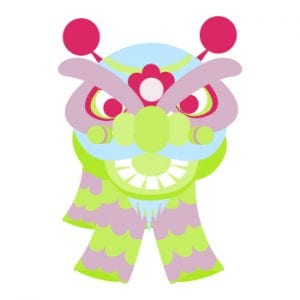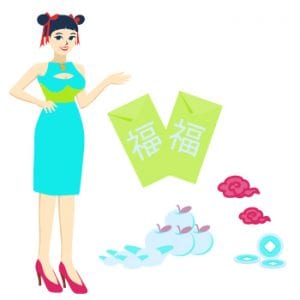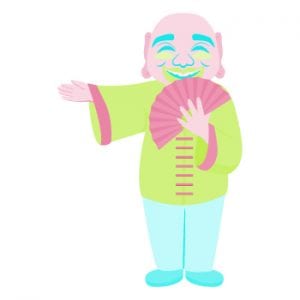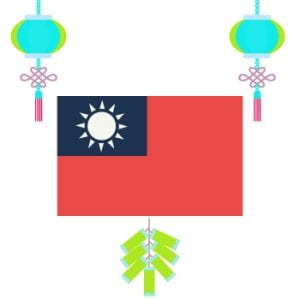
What Are The Taiwanese Survival Phrases?
Taiwan:
The Republic of China (ROC), commonly known as Taiwan, is a country in East Asia with a population of 24 million. The capital and the largest metropolitan area of the country is Taipei. Indigenous peoples first settled on the island of Taiwan 6,000 years ago. But after the partial Dutch colonization, the mass immigration of Han Chinese changed the region in many aspects. Today, ROC’s political status remains controversial. The People’s Republic of China claims ROC, but Taiwan continues to have an independent existence.
Although the country is not a part of the United Nations and has diplomatic relationships with only 14 member states, it continues to progress economically. It has the 21st largest economy in the world by nominal GDP. The biggest contributors to the economy are the electronics, machinery, and steel industries. But what if you want to visit Taiwan? We suggest here how Taiwanese Survival Phrases can help you.
Strong Influence Of Chinese Culture
The culture of ROC has been influenced by various outside factors. The strong influence of Chinese culture is mainly due to immigration. There is also a clear influence of the Japanese culture on the lifestyle of ROC’s citizens. The primary language of the country, like China, is Mandarin. However, the country is officially multilingual because Formosan languages are spoken by the indigenous peoples. Interesting is also how to translate Chinese Characters.


Taiwanese Language:
The majority of Taiwanese people speak Taiwanese Mandarin, which is written in Traditional Chinese. But due to the multiple waves of Chinese immigrants, various Sino-Tibetan languages are spoken in the country. After Mandarin, the popular Sino-Tibetan languages in ROC are Hokkien and Hakka. Although Hokkien and Hakka aren’t the only languages brought into the country by immigrants, they are the most popular. Other languages brought into ROC by immigrants are Japanese, Dutch, and Spanish. Various Japanese loanwords have become a part of the everyday vocabulary of Hokkien and Hakka speakers. The state has established various laws for the protection of Formosan and Hakka languages. They are also taught in elementary schools. Find out here if you want to know about the official languages of Taiwan. But what about Taiwanese survival phrases?
What are the Taiwanese Survival Phrases?
When visiting a foreign country, most people rely on their English language skills to communicate with the natives. But despite being popular all over the world, English is not spoken by everyone. People have to know the native tongue in order to communicate with the locals. However, it is impossible to learn a foreign language every time you have to visit a country. Languages are complex, and you cannot learn them overnight. But this isn’t a problem that cannot be solved. The simplest solution is to memorize the basic phrases that you will need to use in a foreign country. Saying people hello on the street and asking a vendor about the price of a souvenir will become easier if you know the right phrases.
From the vibrant city life of Taipei to the parks and lakes of Taiwan’s underexplored areas, there is a lot that tourists can enjoy in ROC. However, the language barrier can be a problem for outsiders. But if they know a few basic Taiwanese phrases, they won’t have any trouble communicating with the natives.

If you are planning to visit Taiwan, here you can find Taiwanese Survival Phrases:
Greetings
- Don’t let anyone tell you that you can’t say a simple hello to Taiwanese speakers you meet during your trip. All you have to say is “Nĭ hăo” if you want to greet a native speaker of Taiwanese Mandarin. The Chinese pronunciation of the phrase is “nee haoow.” If you add ‘ma’ at the end of Nĭ hăo, it will become a question that would mean, “how are you?” Since this is a common greeting in Taiwan, you can use it with the speakers of Hokkien too.
Thanks
- You may not know it, but you must have already heard the Mandarin way of saying thanks at least once in your lifetime. It is quite commonly used in TV shows. This is written as “Xie Xie” and pronounced as “shey shey.” If you add ‘ni’ after Xie Xie, it will become thank you from thanks. And this is very common in Chinese immigrant communities. Parents encourage their children to use the phrase even if they are not fluent in the language overall.
Sorry
- Taiwanese people speak in a polite and formal manner. If they bumped into you accidentally at the train station, they would apologize for it straightaway. They will also say, excuse me before asking you a question. The phrase that is used for this purpose is “Bù hǎo yìsi.” It can be translated as excuse me, pardon, or sorry. It is pronounced as “boo haow ehh si.” If a tourist wants to ask the price of a product, they can use this phrase to get the attention of the seller.
How Much
- Nobody visits Taiwan without shopping from a night market, but not all the products have a price tag, which can be a problem for foreigners. In such a situation, the phrase “Duō-shǎo-qián” will come in handy. It is pronounced as “doo oh show chee an” and means “how much?” The vendors type out the amount in their calculators when asked about prices by foreigners.
The Polite No
- Being polite is very important in all the Chinese dialects. If a street vendor is trying to sell you something and you don’t want to buy it, it is important to refuse in a polite manner. The phrase “Bú yòng,” pronounced as “boo yong,” means “no need.” It is a polite sentence to tell someone no, instead of refusing them curtly.
Zai Na Li
- Whether you are in Taiwan for business or pleasure, there is a high chance that you will get lost at least once. But the people of ROC are very friendly and will help you reach your destination. However, you should know the right phrase so you can ask for their help. “Zai Na Li” means “Where is…?” You can use it to ask for directions.


Language Books or Apps?
If you will be visiting a foreign country, having a phrase list is a must. But if it is your first experience, you may not know what choice to make. Chinese dialects, including Mandarin, are quite unique. So it the Taiwanese Language and Taiwanese Survival Phrases. They don’t have alphabets but are written with the help of characters. Each character is equally unique and complex. So, there is no way for you to learn a tongue before visiting ROC. However, you can practice a few phrases and make your trip easier.
Books
Books can be helpful in a lot of ways, but not all of them will have the best material. Some might only be useful for those who want to learn a language and not for travelers. Some might contain a literal translation of every word, which is never correct. However, the situation is no different when it comes to apps. Some Mandarin Chinese language apps are only for those who want to learn the tongue. While others only focus on the needs of those traveling for business. Standard Romanization also ruins the experience for users. What you need are guides that come with pronunciation tips. An audio book can be helpful, too, but only if you can keep it on your phone.
Whether you need help with dialects or a language like Hokkien, it is better to look for recommendations. If you want to learn the official language of a country, you will need to access all resources. But if you only need lists of useful phrases and speech guidelines, then you don’t have to spend your money on both books and apps. The above-mentioned phrases will help you communicate with the natives of different cities. As for your stay in the hotel, there is a high chance you will find employees who are fluent in English. They will make sure that you don’t have to face any problems because of the language barrier.

